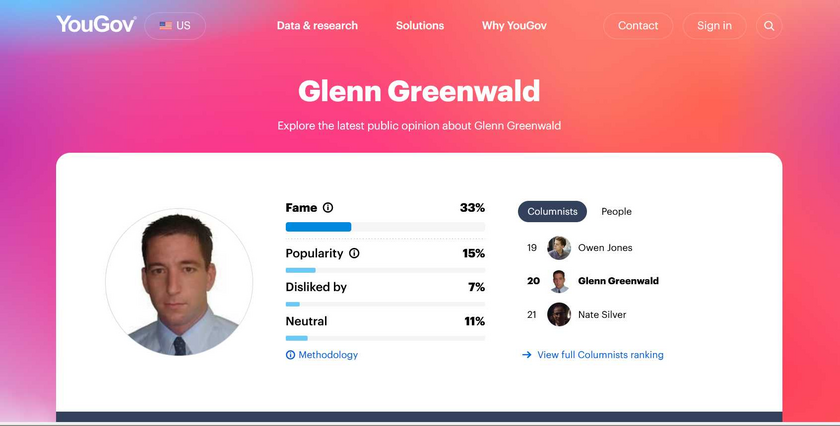Watch the full episode here:

Good evening. It's January 16.
Tonight: Donald Trump won the Iowa caucus last night by 30 points over Ron DeSantis and Nikki Haley in what is the largest-ever victory in a contested Republican Iowa caucus since the race began. It is, I think, insufficiently recognized how remarkable this victory is and how singularly revealing it is. It is not just that the entire political, media and financial establishment was united to stop Trump, though that is, of course, largely true. It is far more than that. Establishment forces already unleashed on Trump a weapon that had never previously been used on a major candidate for the presidency in American history: they formally charged him with felonies and are trying to imprison him—four separate times in four separate criminal proceedings.
He has been indicted, and yet very large swaths of the political public simply do not care. And it is not just Republicans, but independents as well, who continue to give Trump a meaningful lead in the key swing states that will determine the election. Shortly before we went on the air, a very new poll just came out from a very reliable Georgia pollster that put Trump seven points up in Georgia, a state that Biden was declared the winner of in 2020. Put another way, this means that many millions of Americans, arguably most simply no longer trust the core institutions of power and authority in this country. That is not a healthy state of affairs, but it is a very well-deserved one, and we will look at all the implications of that.
Then: European, American and Persian Gulf elites are meeting this week in their annual glamor fest at Davos. Among the attendees is Ukrainian President Volodymyr Zelenskyy, who traveled there and appeared in what The New York Times described as a stylish, smart, war-general-chic “olive green pants and a black crewneck sweater.” He brought with him what he calls a “peace plan,” a proposal that is supposedly going to induce Moscow to stop the war. A peace plan that is so delusional, out of touch and detached from reality that you have to see it to believe it. So, we're going to show it to you.
This war, the one in Ukraine that the U.S. and NATO have funded and fueled, is really one of the most horrific wastes of money and human life in many decades and the fact that the West is still entertaining the possibility of funding this futile bloodbath shows how decayed and rotted the Davos elite has become.
Finally: we were going to do this last night but we ran out of time and so, tonight, we want to take a look back at the truly fascinating and revealing career of a Republican congressman, Paul Findley. He was first elected in 1960 to represent a moderate district in Illinois, and he became one of the earliest opponents of U.S. intervention in Vietnam in the early ‘60s before there was a war authorization, he was angry that the U.S. had deployed what they were calling “advisers” there and, as a result, he authored the War Powers Resolution, the bill that curbs the ability of the president to deploy the U.S. military to fight wars without congressional approval, a law that was much discussed last week after Biden ordered the bombing of Yemen—which continues into this week—without so much as a congressional notification, let alone a debate or a vote.
What makes Congressman Paul Findley particularly interesting is not just how he spent his career, but also how it ended. He not only opposed American intervention in general but was an increasingly vocal opponent of the U.S. funding of Israel and all of its wars. For that crime, for questioning whether it was in the U.S. interest to fund Israel's wars, he was accused by AIPAC, the ADL and other vehement defenders of Israel, of being, you'll never guess what, an anti-Semite, and he then was targeted by the pro-Israel lobby with defeat, after he had served 22 years.
In 1982, AIPAC funded a young Democrat who was highly supportive of Israel. His name was Dick Durbin, who went on to become one of the Democratic Party's most senior officials in Washington, a very reliable supporter of U.S. funding of Israel. In the case of Paul Findley, it was one of the first, by no means the last, that sent a signal to American lawmakers in Washington that they either unquestioningly support Israel and vote for U.S. funding of it or face likely destruction of their career.
For now, welcome to a new episode of System Update, starting right now.

























